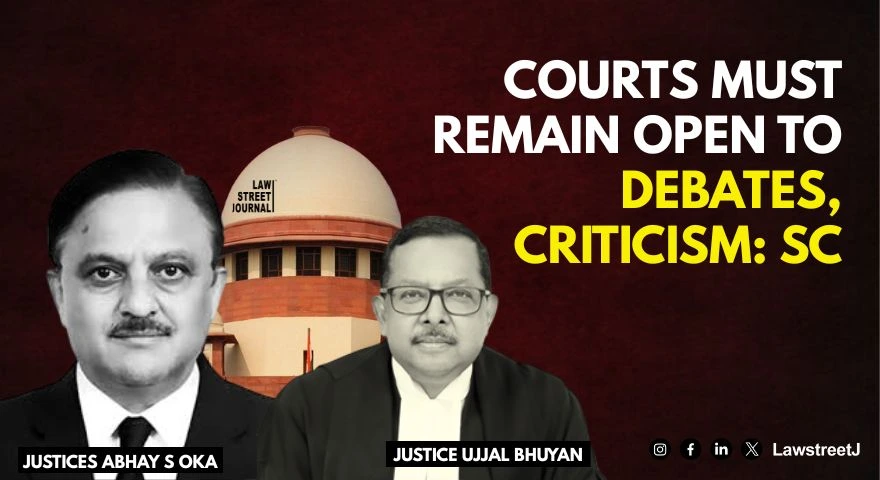NEW DELHI: The Supreme Court on Friday said courts, as a public and open institution, must always remain open to public observations, debates and criticisms.
"Infact, courts should welcome debates and constructive criticism. Every important issue needs to be vigorously debated by the people and the press, even if the issue of debate is subjudice before a court," a bench of Justices Abhay S Oka and Ujjal Bhuyan said.
In its judgment, the apex court set aside the Delhi High Court's division bench direction to Wikimedia Foundation to delete pages on discussions about the court proceedings in suit filed by the ANI.
The court found the division bench bench had reacted disproportionately in the matter.
The High Court held the discussion on the observations made by the bench amount to interference in court proceedings and violation of the sub judice principle by a party to the proceeding and borders on contempt.
Favouring open debate and discussion even in sub judice matter, the court emphasised, those who offer criticism should remember that Judges cannot respond to such criticism but if a publication scandalizes the court or a Judge or Judges and if a case of contempt is made out, certainly courts should take action.
"But it is not the duty of the court to tell the media: delete this, take that down," the bench declared.
For the improvement of any system and that includes the judiciary, introspection is the key. That can happen only if there is a robust debate even on issues which are before the court. Both the judiciary and the media are the foundational pillars of democracy which is a basic feature of our Constitution. For a liberal democracy to thrive, both must supplement each other, the court said.
Referring to the Contempt of Courts Act 1971, the bench said, "If a member of the public or a litigant or for that matter even the media tries to scandalize the court by making sweeping unfounded allegations against the court or the Judges or by imputing motives against the Judge or Judges who had passed a judicial order or had conducted the court proceedings, certainly the courts would be justified to initiate criminal contempt proceedings against such contemnors."
This would also be a ground to direct postponement of publication as contempt of court is a reasonable restriction enumerated under Article 19(2) on the freedom of speech and expression under Article 19(1)(a) of the Constitution, the court said.















